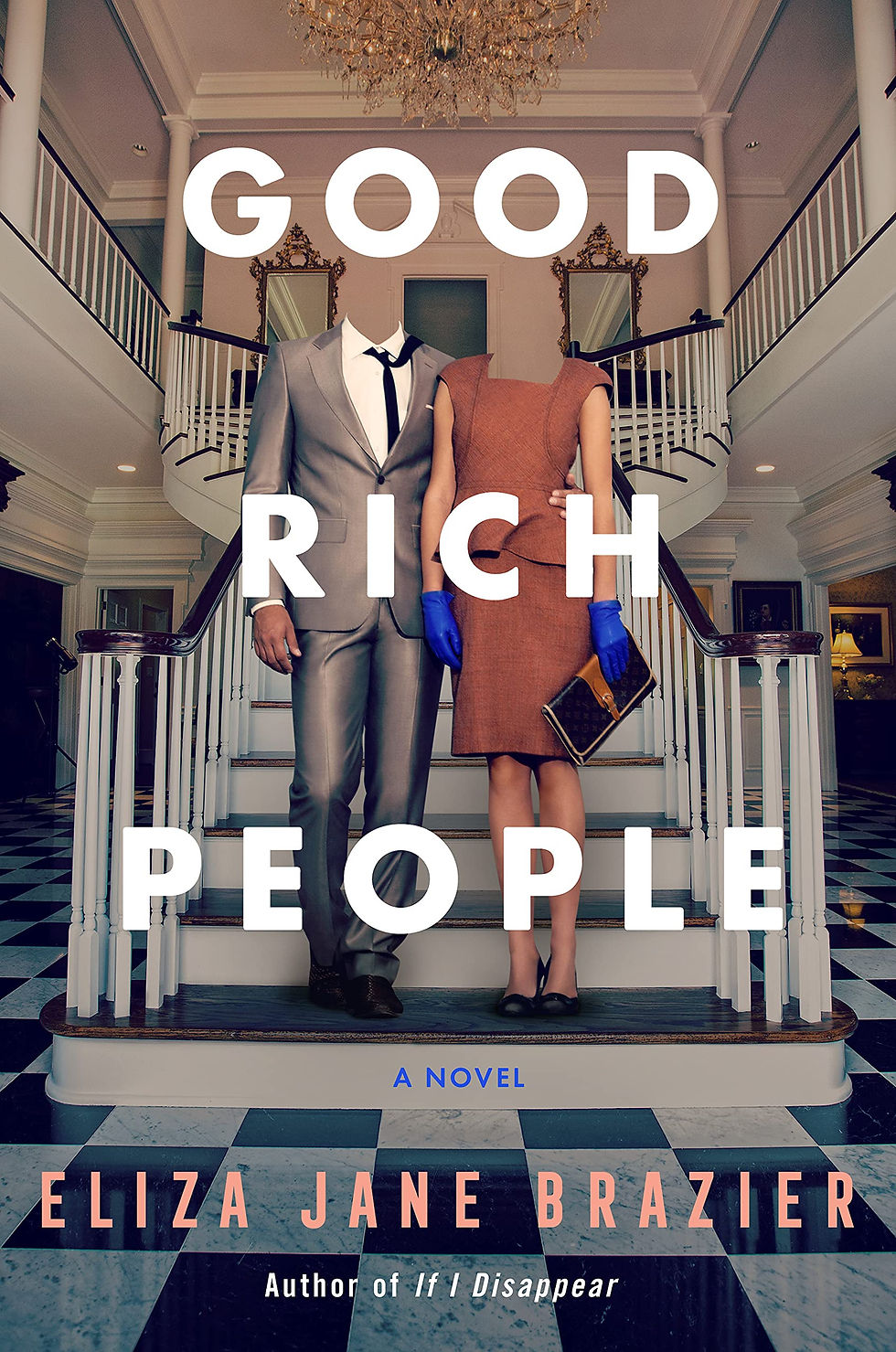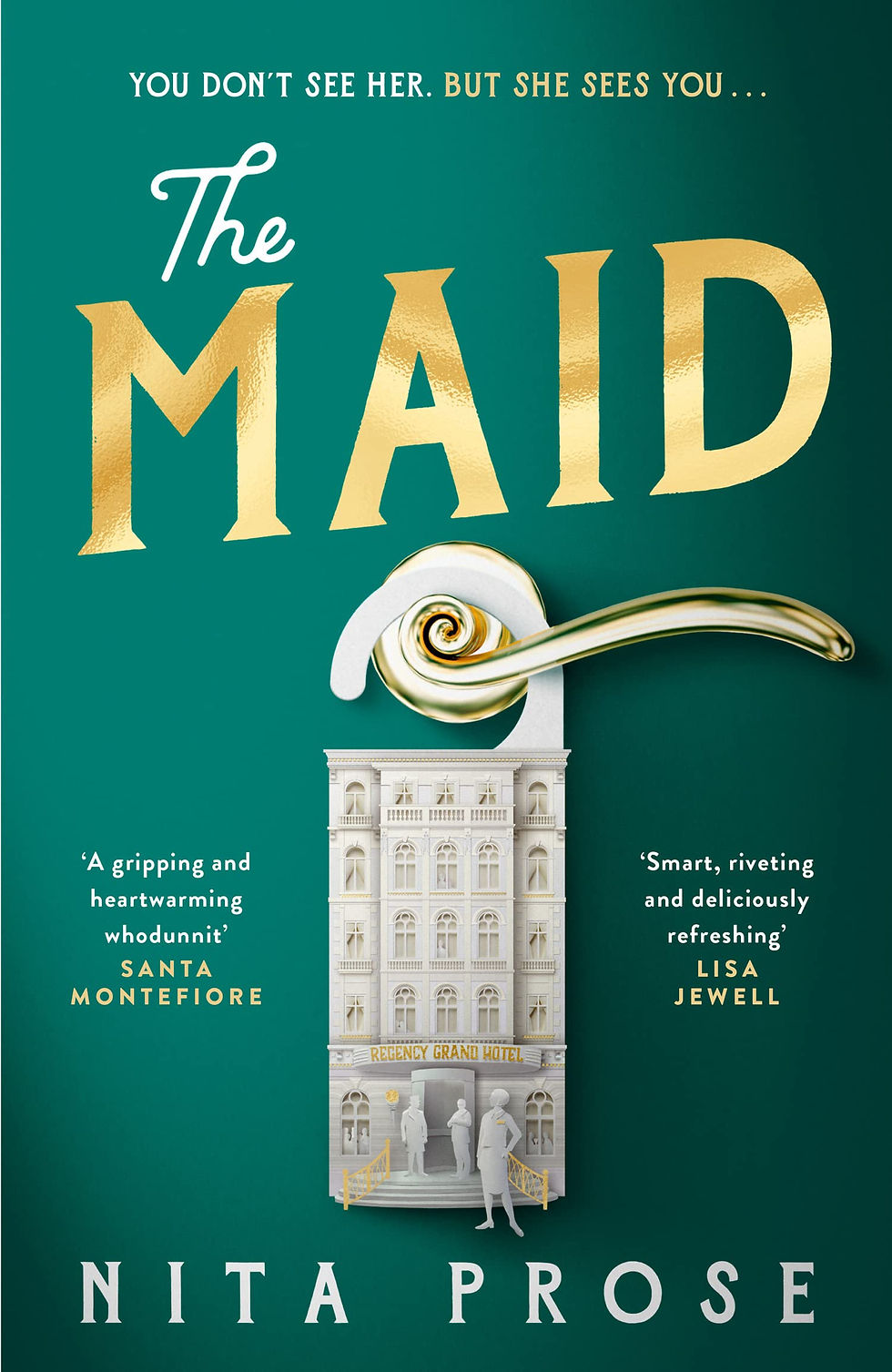To Paradise by Hanya Yanagihara - review
- La BiblioFreak
- Jan 17, 2022
- 4 min read

Title: To Paradise
Author: Hanya Yanagihara
Genre: Literary Fiction/Historical fiction/Science fiction
Pages: 720
My rating: ★★★☆☆
Other notable works by author: A Little Life; The People in the Trees
I’ve heard To Paradise be described as a symphony, the three stories, though set in different times, woven together to create one harmonic composition. I disagree. To me, it feels more like four different compositions mashed together discordantly.
In the first, set in 1893, in an alternate version of New York, the story focuses on David, a young man with a big decision: he must either follow his heart and stay with beautiful, but poor Edward; or make the more ‘sensible’ decision and marry Charles, a kind, but older gentleman.
Apart from the most obvious difference with other novels set in this period (that homosexual relationships and marriages are legal and encouraged), it’s pretty much a tale as old as time. Yanagihara doesn't bring much new to the table in this first part, and her rendering of late nineteenth-century dialogue is shoddy, at best.
Part two is divided into two sections. In the first, set in 1993 again in New York, a young man, David, lives with his older, richer partner, from whom he hides his troubled past and the truth about his father, while navigating a Manhattan society beleaguered by the AIDS epidemic. The second section, set in Hawaii, is told from the point of view of David’s father (also David) and it’s his explanation to his son of his childhood and his unhealthy friendship with a man named Edward.
This second part of the novel was long and full of anguish. It was excruciating to read about David’s father’s life, his unexplained apathy towards life. This was the part that most reminded me of A Little Life and of Jude. I tore through this section quickly, as if ripping off a band-aid. Over the course of nearly two hundred pages, nothing much happens, and there are no deep, thought-provoking revelations. It’s more misery for the sake of misery, a specialty of Yanagihara.
Part three is where things get a lot more interesting. The year is now 2093, the setting once again Manhattan. Except now it’s divided into different zones that the citizens cannot cross (except to go to work), and the world is plagued by pandemic after pandemic. The story is told from Charlie’s point of view, a young woman (and the only major female protagonist in the whole novel) who survived an infection as a child but lives with the side effects of the medicine that saved her. As she mourns her beloved grandfather, a renowned scientist, she navigates her day-to-day life with her mysterious husband and another pandemic possibly on the horizon. Interspersed throughout are epistolary chapters told from her grandfather’s perspective, describing his life starting from way before Charlie was born, when he moved to New York to pursue his career as a scientist, up until the events that led to his death. This part is intriguing because we get to see the progression of Manhattan as it becomes a totalitarian state.
Charlie and Charles (her grandfather) are the only two characters I cared about throughout the entire novel. Their relationship is the heart of the story, their narrative is intriguing. And because I cared about them, I wanted to know more – I had to see how the story ended. My biggest problem with A Little Life was that the main four characters were so glaringly unlikeable, it made me just want to get it over with. That seemed to be the case here in this novel as well until we get to the third part and we are introduced to Charlie and Charles. And that’s one of the reasons why I think this novel is a vast improvement on the previous one.
Honestly though, at over 700 pages, I feel like we could’ve done without the whole first half of the book. Parts one and two are unoriginal stories that don't add anything to part three. Sure, the characters have the same names (though there doesn't seem to be any actual familial connection), and they struggle with the same things: love, or lack thereof; fear; pain; family. But aren’t these the themes of most novels? Aren't these the emotions that most people have to contend with? I don’t see how the stories connect otherwise, and I wish the author had focused more on enriching part three, than adding the superfluous previous parts.
Of course, I can’t write a review about a novel about pandemics without acknowledging that we are living through a pandemic at this very moment. Yes, this made the novel feel more exciting and scary, and yes, I could see elements borrowed from real life (the temperature checks, the mass graves that were all over the news in New York back in 2020). But of course, this is a work of fiction, a dystopian novel playing on some of humankind’s worst fears: sickness, death, isolation, loss of freedom, a totalitarian state. It's novelistic sensationalism at its finest. While Yanagihara excels at writing about the intrinsic ugliness present throughout humanity, we must remember the other side too, the one worth living for, the beauty of love and care (represented by Charles and Charlie’s relationship) that not even the most terrible pandemic can suppress.



Comments